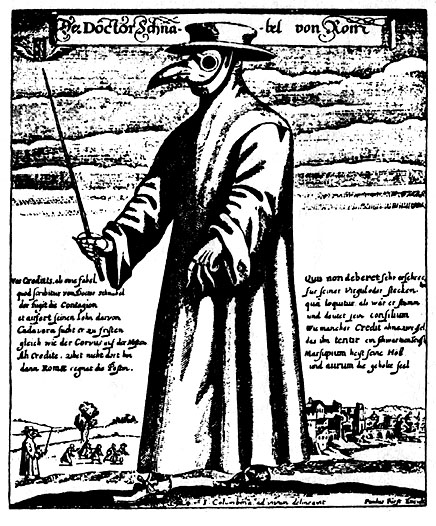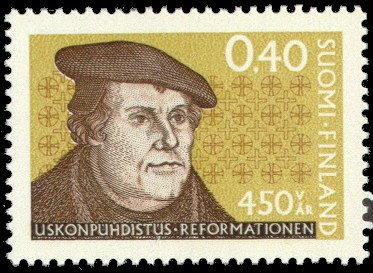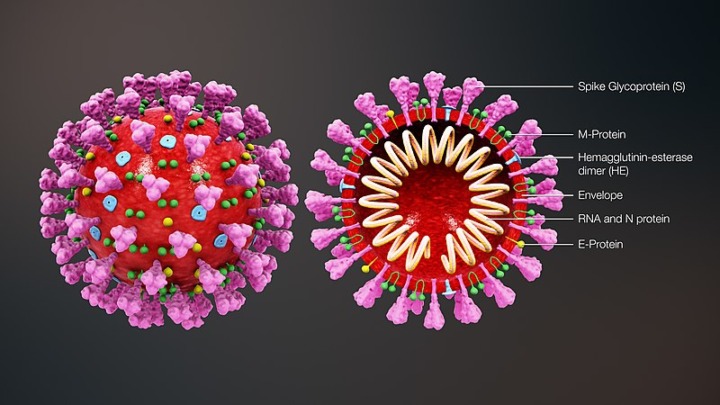中国の武漢で新型コロナ・ウイルスによる肺炎が発生して以来、各国の旅行業界やビジネス業界は不安に陥り、混乱している。中国だけでも300人以上(2月2日現在)がこのウイルスで死亡しており、20カ国で1万人以上という感染者数(2月3日現在)は、2003年に流行した「SARS(サーズ)」を上回るものだ。
[toggle]From its epicenter in Wuhan, China, the current coronavirus outbreak is stoking fear and disrupting travel and business across the globe. More than 150 people have died from the virus in China alone, and more than 8,000 are infected across 20 countries—exceeding the SARS epidemic in 2003. [/toggle]大都市である武漢は政府によって封鎖されており、中国の春節(旧正月、1月25日。30日まで7連休)の年次行事を含め、公の行事はすべて取りやめになっている。その中で武漢や中国各地のクリスチャンは難しい判断を迫られている。多くの市民と同じように(慣例どおり)故郷に帰って親類と会うか、中国本土から逃げるか。そもそも、いつもどおり日曜礼拝に集まるのか。
[toggle]Citizens in Wuhan, a major central city comparable to Chicago, are under lockdown by the government and public activities have come to a standstill, including annual celebrations for Chinese New Year (which began on January 25). Chinese Christians, in Wuhan and China at large, have faced difficult decisions about whether to join the millions of Chinese who return home to visit family (as is customary during the lunar holiday season), to flee from the mainland, or even to gather for regular Sunday services. [/toggle]人々が苦しみの中に死にゆく状況で、イエスを慕う者たちが伝染病を前にして逃げ出すのは正しいことだろうか。
[toggle]But are followers of Jesus right to flee an epidemic when people are suffering and dying? [/toggle]16世紀、ドイツのクリスチャンが神学者マルティン・ルターに求めたのは、まさしくこの疑問への答えだった。
[toggle]In the 16th century, German Christians asked theologian Martin Luther for a response to this very question. [/toggle]
17世紀、ペストから身を守るための医師の服装(版画:ポール・フュルスト)
黒死病(ペスト)によってヨーロッパの人口の約半数が死に絶えてから(1348年~1420年に大流行)まだ200年も経っていない1527年、ルターのいた町ヴィッテンベルクや近隣の都市を再び疫病が襲った。「死に至る病ペストから逃げることは許されるか」という手紙の中でルターは、疫病が伝染する中における市民の責任について考察している。そのメッセージは今日、感染症の発生に直面するクリスチャンにとって実用的なものだ。
[toggle]In 1527, less than 200 years after the Black Death killed about half the population of Europe, the plague re-emerged in Luther’s own town of Wittenberg and neighboring cities. In his letter “Whether One May Flee from a Deadly Plague,” the famous reformer weighs the responsibilities of ordinary citizens during contagion. His advice serves as a practical guide for Christians confronting infectious disease outbreaks today. [/toggle]まずルターは、他者へ奉仕する者は誰でも、職業上「逃げない」責務があると主張している。「(奉仕する立場にある者は)死の危険を前にしても、しっかりと踏み留まらなければならない」と彼は書く。病気で死にかけている人々は、励ましや慰めを与える牧者を必要とする。亡くなる前にその人が聖餐(聖体拝領)を望むのであれば、誰かがそれを行わなければならない。市長や裁判官などの公務員は、市民の秩序を維持する必要がある。医師や警察官も、職務を継続しなければならない。親や保護者には、子どもを守る義務がある。
[toggle]First, Luther argued that anyone who stands in a relationship of service to another has a vocational commitment not to flee. Those in ministry, he wrote, “must remain steadfast before the peril of death.” The sick and dying need a good shepherd who will strengthen and comfort them and administer the sacraments—lest they be denied the Eucharist before their passing. Public officials, including mayors and judges, are to stay and maintain civic order. Public servants, including city-sponsored physicians and police officers, must continue their professional duties. Even parents and guardians have vocational duties toward their children. [/toggle]
ルターを描いた切手(Posti-ja telelaitos発行)
ルターは病気の治療を医療従事者の事柄として限定することはなかった。その主張は、ベッドや人員が不足している武漢の状況に通ずるものがある。人口約1100万人、中国最大規模の都市である武漢では、増え続ける新型コロナ・ウイルス患者に対応するため、新しい病院を2棟、突貫工事で建設している。医療訓練を受けていない一般市民でも、病人をケアする必要に迫られるかもしれない。ルターがクリスチャンに求めているのは、キリストご自身の世話をするように病人を世話することだ(マタイ25:34~40)。神への愛から隣人への愛の行為が生まれる。
[toggle]Luther did not limit tending the sick to health care professionals. In a time when Wuhan faces a shortage of hospital beds and personnel, his counsel is especially relevant. The city, one of China’s largest with a population of about 11 million, is in the process of rapidly constructing two new hospitals to accommodate growing crowds of coronavirus patients. Lay citizens, without any medical training, may find themselves in a position of providing care to the sick. Luther challenges Christians to see opportunities to tend to the sick as tending to Christ himself (Matt. 25:41–46). Out of love for God emerges the practice of love for neighbor. [/toggle]しかしルターは読者に対して、考えなしに自らを危険にさらすよう促しているわけではない。手紙の中では二つの判断基準が絶えず争点になっている。一つは自分の命を尊重すること、そしてもう一つは、困窮している人の命を尊重することだ。神は人に自らを守る習性を与え、その体を大切にするよう任せておられることを、ルターは次の聖句を挙げて明らかにしている。
これまで、誰もわが身を憎んだ者はいません。かえって、キリストが教会になさったように、わが身を養い、いたわるものです。(エフェソ5:29)
……一つの部分が苦しめば、すべての部分が共に苦しみ、一つの部分が尊ばれれば、すべての部分が共に喜ぶのです。(1コリント12:21~26)
ルターは検疫などの公衆衛生対策を支持しているし、医師がいるのであれば、必要に応じて受診するよう求めており、「それらを行わないことは無謀である」と述べている。神は人に体を与えたように、この世に薬をもたらしたのだ。
[toggle]But Luther does not encourage his readers to expose themselves recklessly to danger. His letter constantly straddles two competing goods: honoring the sanctity of one’s own life, and honoring the sanctity of those in need. Luther makes it clear that God gives humans a tendency toward self-protection and trusts that they will take care of their bodies (Eph. 5:29; 1 Cor. 12:21–26). He defends public health measures such as quarantines and seeking medical attention when available. In fact, Luther proposes that not to do so is to act recklessly. Just as God has gifted humans with their bodies, so too he has gifted the medicines of the earth. [/toggle]それでも逃げたいと思うクリスチャンについてはどうだろうか。ルターは、「むしろ逃げることが信仰的な応答かもしれない」と記している。ただしそれは、緊急事態が起こらず、「病者を看護する」人がいる場合の話だ。ルターは「良い行い」を「救い」から切り離して考えているということに留意したい。最終的にルターは、ペストから逃げるか留まるかの判断を人々にゆだね、聖書の祈りと瞑想を通して最善の信仰的判断にたどり着けることを信じている。病人を助ける働きは、義務感ではなく恵みから生じるものだ。
[toggle]What if a Christian still desires to flee? Luther affirms that this may, in fact, be the believer’s faithful response, provided that no emergency exists and that they arrange substitutes who will “take care of the sick in their stead and nurse them.” Notably, Luther also reminds readers that salvation is independent of these good works. He ultimately tasks them to decide whether to flee or to stay during plagues, trusting that they will arrive at a faithful decision through prayer and meditation on the Scriptures. Participation in aiding the sick arises out of grace, not obligation. [/toggle]ルター自身が恐れを抱くことはなかった。大学の同僚から説得されても、病気で死にかけている人に仕えるため、彼は町に残った。隣人への奉仕について、「小さなできもの(ペスト)など恐れるな」と読者に語っている。
[toggle]However, Luther himself was not afraid. Despite the exhortations of his university colleagues, he stayed behind to minister to the sick and dying. He urged his readers not to be afraid of “some small boils” in the service of neighbors. [/toggle]神の子たちは地上で苦しみを受けるが、キリストへの信仰を宣言する人々は、「病気や苦しみからの解放」という天からの約束を共に受けている。武漢にいる一人の牧師は、世界中のクリスチャンへ祈るよう求める公開書簡の中でこう書いている。「(キリストの)平和とは、災いや死が私たちから取り除かれることではなく、私たちが災いや死のただ中にある時に与えられる平和のことです」。この武漢の牧師とルターは、どちらも苦しい現実を訴えているが、「死や苦しみが最も重要なことではない」という理解において一致している。
[toggle]Though God’s children face earthly sufferings, those who proclaim faith in Christ share in a heavenly promise of freedom from illness and suffering. In an open letter calling for prayer from Christians around the globe, an anonymous Wuhan pastor affirms “[Christ’s] peace is not to remove us from disaster and death, but rather to have peace in the midst of disaster and death, because Christ has already overcome these things.” Both Luther and the Wuhan pastor express the reality of suffering but recognize that death and suffering do not have the final word. [/toggle]
新型コロナ・ウイルスの3D医療イラスト(Scientific Animations )
今週、中国の祖父母から便りが届いた。二人は健康だが、アパートで「ネズミのように」暮らし、必要な時にしか出かけないという。ちなみに、中国の干支(えと)で2020年はネズミ年だが、14世紀、体についたノミを介して疫病をヨーロッパ全体に広めたのもネズミだ。
[toggle]This week, my grandparents in China messaged me that they are well but are dwelling “like rats” in their apartment, leaving only when necessary. Incidentally, in the Chinese Zodiac system, 2020 is the Year of the Rat—the animal that spread pestilence-carrying fleas across Europe in the 14th century. [/toggle]私の祖父母は武漢の西にある四川省に住んでおり、そこでは100人以上の新型コロナ・ウイルス感染者が確認されている。祖父母や、中国に住む親戚のことは気にかかる。アジア各国でマスクが在庫切れになっていると聞き、私や両親は中国の親戚たちにマスクを送ろうとしたが、米国でもマスクが品薄状態にあるということが今週分かった。
[toggle]My grandparents live west of Wuhan in the province of Sichuan, where more than 100 coronavirus cases have been confirmed. I cannot help but think of them and my other relatives living in China at this time. Hoping to send them masks now out of stock in many stores throughout Asia, my parents and I discovered this week that even US stores have been depleted. [/toggle]感染病勃発という恐怖の中で、私はルターの手紙に再度向き合っている。将来、医師を志す医学生である私は、それが新型コロナ・ウイルスであろうが、結核であろうが、またはインフルエンザであろうが、病人の世話をするという明確な職業上のコミットメントを持っている。 もちろん、予防対策は取る。しかし、「病人は一人ひとり皆、治療を受ける権利を持つ一個人だ」ということをルターは思い起こさせてくれた。
[toggle]In a climate of fear surrounding the outbreak, I come back to Luther’s letter for guidance. As a medical student and a future physician, I have a clear vocational commitment to caring for the sick—whether they have coronavirus, tuberculosis, or influenza. Precautions I will take, yes. But I am reminded by Luther that they are individuals deserving of care all the same. [/toggle]イエスが語った羊と山羊(やぎ)のたとえの中で、正しいとされた人は尋ねた。「いつ、病気をなさったり……するのを見て、お訪ねしたでしょうか」。イエスは答えた。「よく言っておく。この最も小さな者の一人にしたのは、すなわち、私にしたのである」(マタイ25:31~40)。新型コロナ・ウイルスが私たちのコミュニティーに忍び寄るとき、私たちが取ることのできる信仰的行動とはどのようなものだろうか。
[toggle] “When did we see you sick?” ask the righteous in the parable of the sheep and the goats, to which Jesus responds, “Whatever you did for one of the least of these brothers and sisters of mine, you did for me” (Matt. 25:39–40). If and when the coronavirus encroaches upon our communities, how will we faithfully respond? [/toggle]執筆者のエミー・ヤンは、デューク神学校の神学・医学・文化学フェロー。マウント・サイナイ大学の医学生でもある。
本記事は「クリスチャニティー・トゥデイ」(米国)より翻訳、転載しました。翻訳にあたって、多少の省略をしています。
